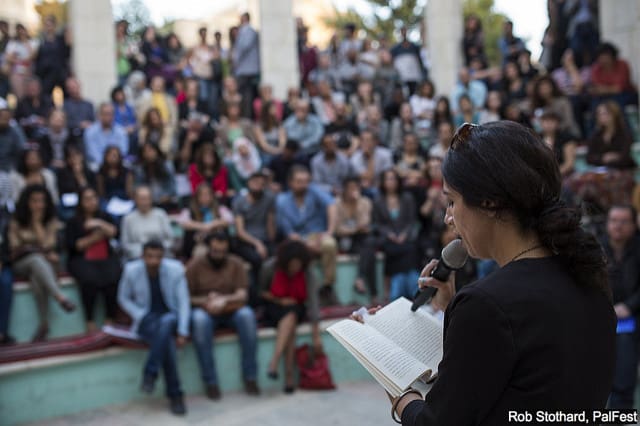Amending the Charter: What’s in It for Hamas?

Al-Shabaka is pleased to share this policy memo by policy analyst Belal Shobaki, which details current considerations Hamas may be taking into account given news of the party’s likely decision to amend its charter.
Do Not Let Go of the Green Line: It Is Israel’s Achilles Heel

As Israeli right-wing leaders push to illegally annex occupied Palestinian territory, Al-Shabaka Executive Director Nadia Hijab argues that the Green Line is a powerful tool to hold Israel accountable for its multiple violations of Palestinian human rights. For Europe especially the Israeli moves threaten the global order in a way that goes far beyond Palestine.
Palestinians and the Syrian War: Between Neutrality and Dissent

The Palestinians of Syria are forced to maintain political neutrality or support the regime, given their vulnerable position. Al-Shabaka Policy Analyst 24556 unpacks the roots of this predicament, identifies avenues that suggest how to move beyond it, and recommends tactics for Palestinians in Syria and elsewhere to better advocate for human rights and self-determination.
Palestinian Democracy Denied

The failure to conduct local elections in the occupied territories and the Fatah conference, which largely reaffirmed a moribund status quo, are the latest examples of stymied Palestinian democracy. Al-Shabaka analysts examine the notion of democracy under military occupation, the factors constraining it, and the form that makes sense for the Palestinian people.
Palestine After Abbas: Potential Scenarios and Coping Strategies

With the election of Donald Trump, Israel believes it is free to do what it likes in the Occupied Palestinian Territory, making a difficult Palestinian leadership transition much harder. Al-Shabaka policy analysts examine different scenarios and propose alternatives ranging from consolidating the state to a struggle for the rights of the Palestinian people as a whole.
One Hundred Years and Counting: Britain, Balfour, and the Cultural Repression of Palestinians

The government and corporations of the United Kingdom have recently intensified efforts to censor Palestinian creative expression. Al-Shabaka Policy Member Aimee Shalan traces the roots of these attacks on Palestinian history and culture to the 1917 Balfour Declaration and offers recommendations for how civil society can bring the UK to change its approach.
The Palestinian Authority: Unsettling Status Quo Scenarios

Is one state the only alternative to an unrealized two-state solution? Al-Shabaka Policy Member 24378 discusses the minimal changes in governance the PA has made post-Oslo and forecasts a “status quo+,” an institutionalized system of apartheid and a no-state solution. He also foresees three states – but argues none of this would be sustainable over time.
Palestinian Oral History as a Tool to Defend Against Displacement

A recent surge in the production of Palestinian oral history provides a new opportunity for activists defending communities against displacement. Al-Shabaka Policy Member 24576 outlines an advocacy role for a Palestinian oral history focused on local needs and uses concrete examples to demonstrate how such a role could promote land-based rights.
The “S” in BDS: Lessons of the Elbit Systems Campaign

Israeli military companies such as Elbit Systems appear invincible, yet Israel’s arms industry is more vulnerable than it seems. Al-Shabaka Guest Author 24471 and Policy Advisor Jamal Juma’ examine both national and global trends and identify avenues for human rights activists to pursue to hold Israel accountable under international law.








